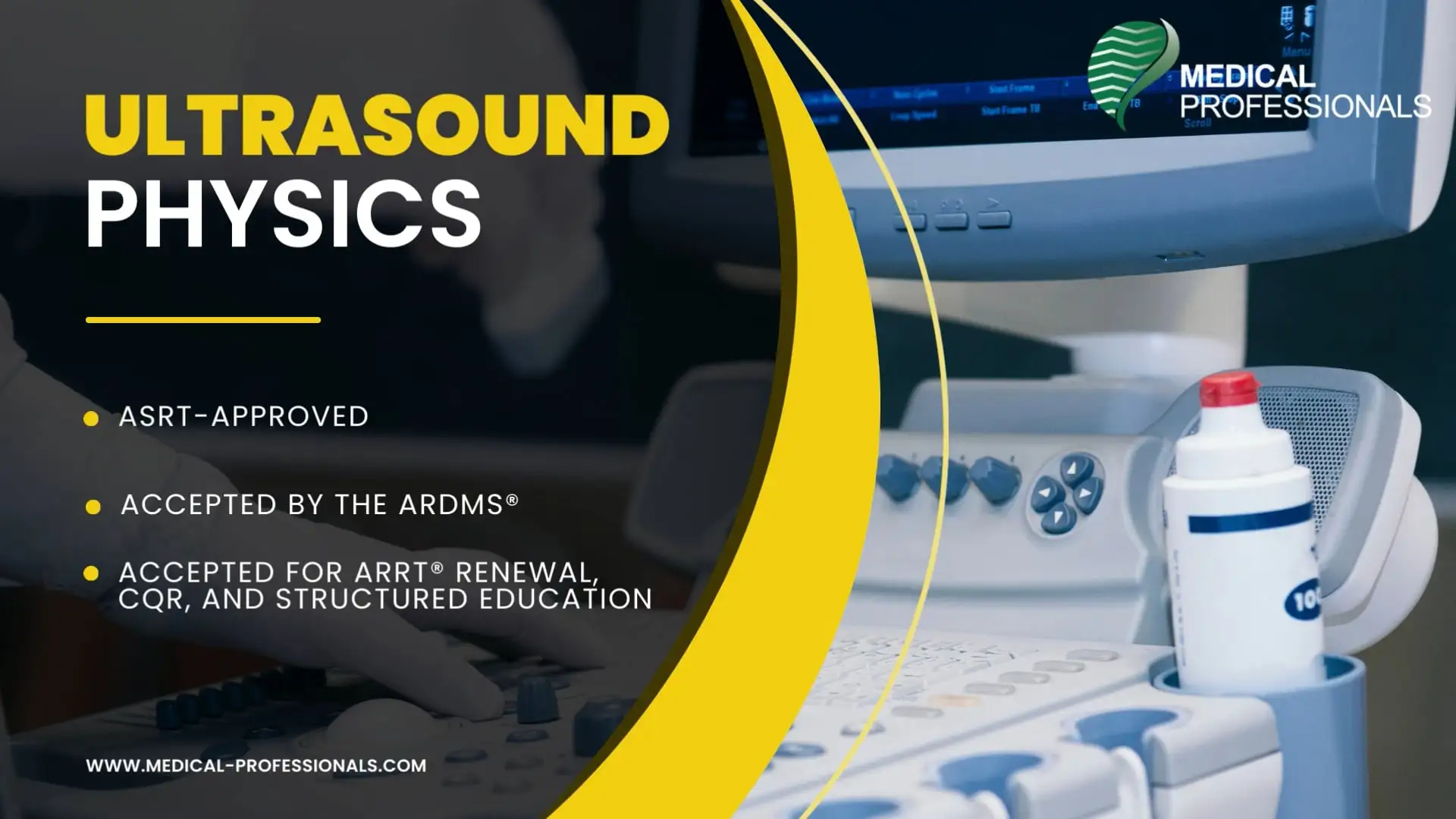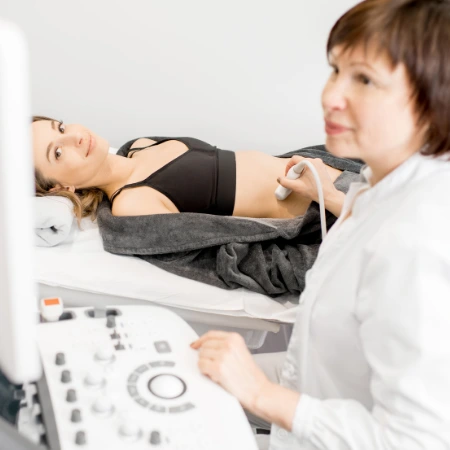

Ultrasound Physics CME Course
This course simplifies mastering ultrasound physics by covering the essentials of imaging techniques and artifact reduction. Earn 1.25 CMEs while building a strong foundation in ultrasound physics.
- Approved by the ASRT (American Society of Radiologic Technologists) for 1.25 Category A CE Credits
- Accepted by the ARDMS® for RDMS®, RDCS®, and RVT®
- Subscription duration: 365 days from purchase date
- Voiceover available
- Downloadable transcript available
- Meets the CE requirements of the following states: California, Texas, Florida, Kentucky, Massachusetts, and New Mexico
- Meets ARRT® CE reporting requirements
- Meets ARDMS® CE reporting requirements
- Hassle-free 30-day full refund policy*

“Ultrasound Physics” is a foundational CME course aimed at deepening your understanding of ultrasound principles and limitations. It covers key parameters for correcting artifacts in sonography. The course offers a thorough overview of ultrasound physics, including image formation, resolution, and different ultrasound modes and artifacts. It also explains machine functions and manipulation. You will learn about the Doppler effect, ultrasonic velocimetry, and the principles behind harmonic imaging, with a focus on its benefits. Clinical examples are included to reinforce learning and help you master the concepts.
| Discipline | Major content category & subcategories | CE Credits provided |
| BS-2016 | Image Production | |
| Basic Principles of Ultrasound and Equipment | 0.50 | |
| Image Formation | 0.50 | |
| Evaluation and Selection of Representative Images | 0.25 | |
| BS-2021 | Image Production | |
| Basic Principles of Ultrasound | 0.50 | |
| Image Formation | 0.50 | |
| Evaluation and Selection of Representative Images | 0.25 | |
| SON-2019 | Image Production | |
| Basic Principles of Ultrasound | 0.50 | |
| Image Formation | 0.50 | |
| Evaluation and Selection of Representative Images | 0.25 | |
| VS-2021 | Image Production | |
| Basic Principles of Ultrasound | 0.50 | |
| Image Formation | 0.50 | |
| Evaluation and Selection of Representative Images | 0.25 |
Section 1: Basic Physics
- Introduction
- Piezoelectric effect
- Probes / transducers
- Propagation of ultrasound
- Attenuation of ultrasound
Section 2: Ultrasound Image
- Principle of image formation
- Image resolution
- Ultrasound imaging modes
- Artifacts in ultrasound imaging
Section 3: Machine Handling
- “On/off’”
- Output power control
- Patient data entry
- Select / change probes
- Depth control
- Gain
- “TGC”
- Focal zones
- “Freeze”
- “Trackball”
- Zoom
- 3D
- 4D
- M mode
- Color doppler
- Continuous doppler
- Pulsed doppler
Section 4: Doppler Ultrasound
- Doppler effect
- Ultrasonic velocimetry
Section 5: Harmonic Imaging
- Non-linear propagation
- Principle
- Reverberation artifacts
- Tissue aberrations
- Clinical advantages
- Clinical examples
- Summary
|
Get it now!
One-time payment. No hidden fees. No extra charges per credit.
|
|
|
Unlimited CE Credits
For Only $49.99
1 – year Access – Doesn’t Auto-Renew
Guaranteed 30-day Refund Policy

